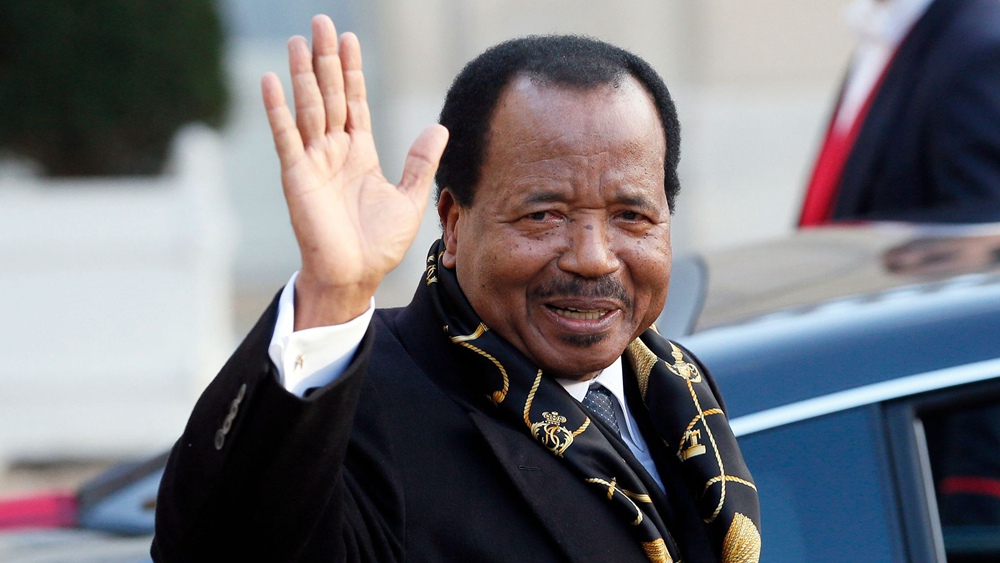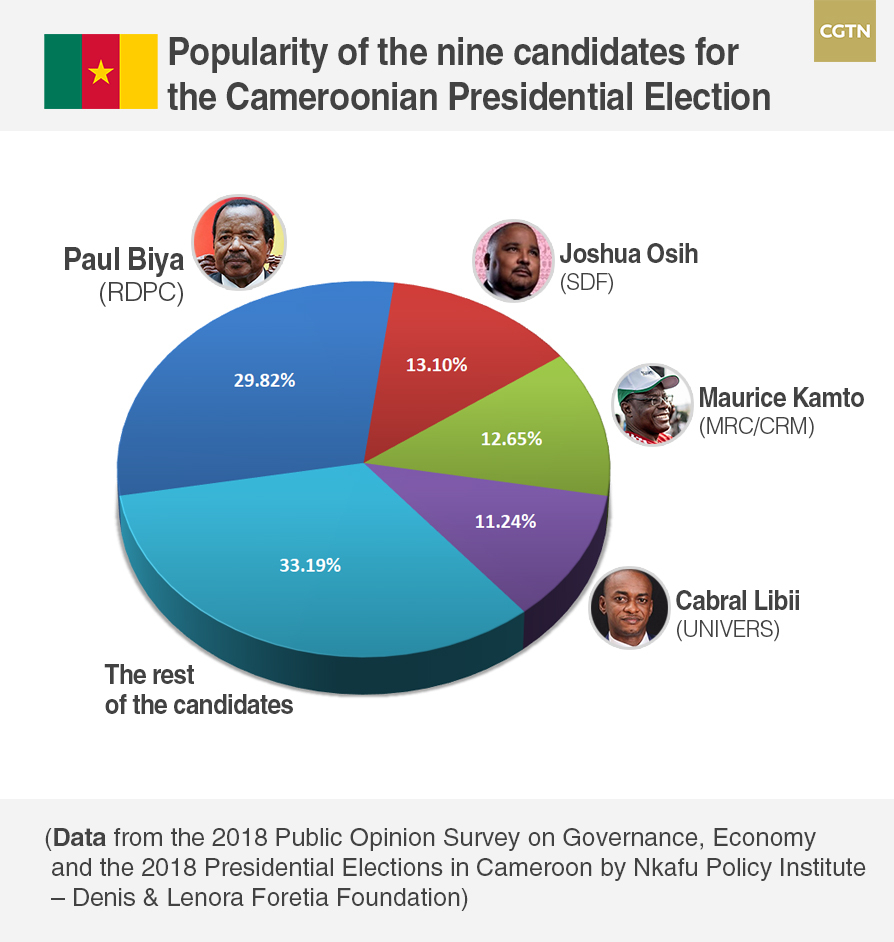Most likely, no.
Despite a recent survey that puts Paul Biya's popularity at about 30 percent, many analysts still believe the 85-year-old is almost certain to secure his seventh term in Sunday's presidential election.
Paul Biya of the Cameroon People's Democratic Movement (CPDM) has ruled the country since 1982.
So, what is it that makes the prospect of another presidency for Biya so certain?
Biya vs. the fractured opposition
Under Biya's leadership, Cameroon has been a largely peaceful place in the past few decades, and his ability to maintain a balance between political forces in different regions has also won him support across the country.
What's more important is that the government of Biya introduced political reforms which eventually led to the introduction of multi-party politics in the 1990s.
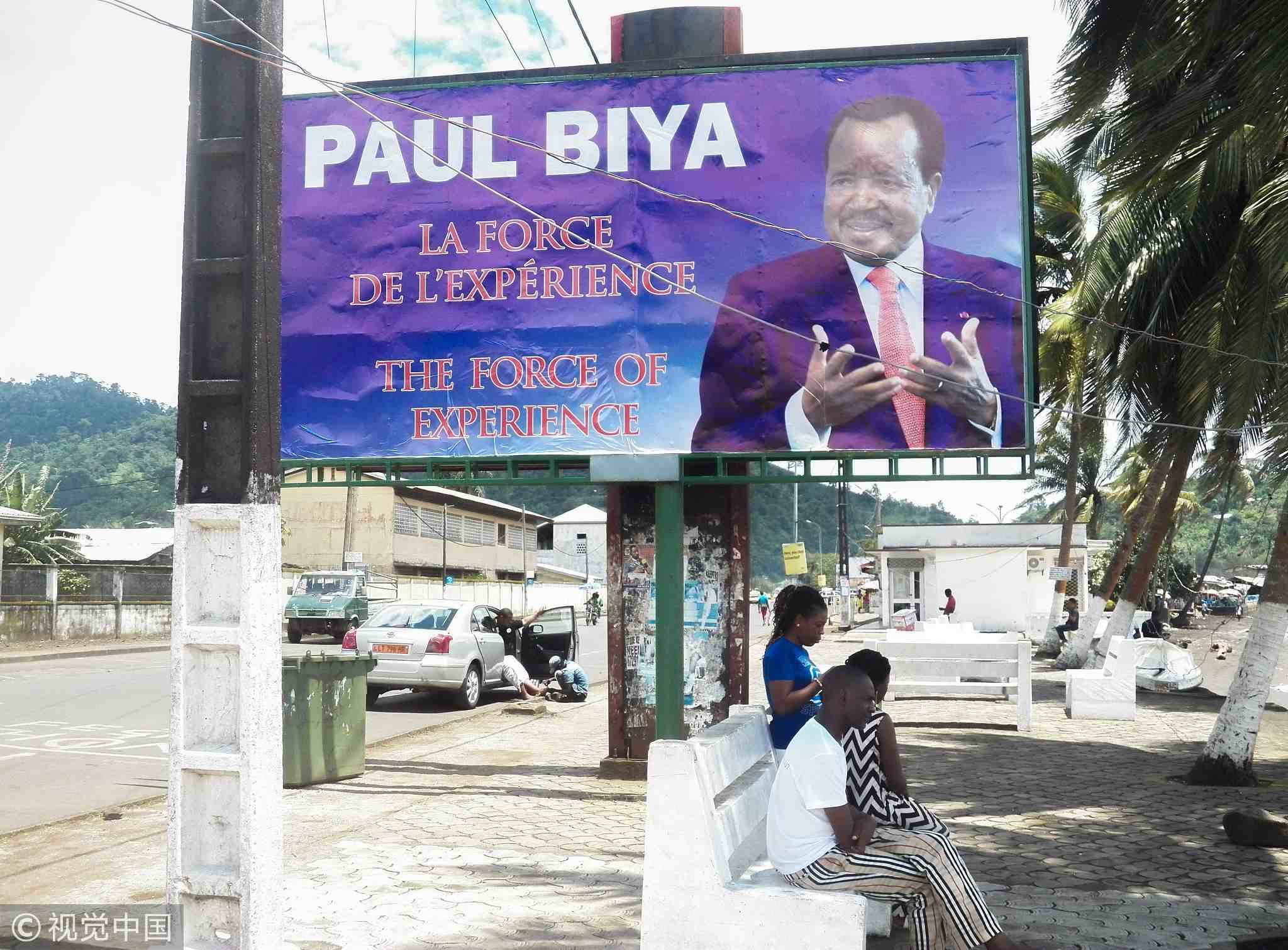
People sit in the shade next to a campaign billboard of Cameroon's incumbent President Paul Biya in the southwestern coastal town of Limbe, Cameroon, September 26, 2018. /VCG Photo
People sit in the shade next to a campaign billboard of Cameroon's incumbent President Paul Biya in the southwestern coastal town of Limbe, Cameroon, September 26, 2018. /VCG Photo
President Biya himself is a figure with an incomparable reputation among many Cameroonians.
When he visited the town of Maroua in the country's Far North Region for a campaign rally on September 29, supporters crowded along the town's streets, which were already lined with billboards bearing his face.
One supporter of the president said: "The RDPC has already taken off, Paul Biya is our pilot, we'll vote for him, 100 percent."
However, there have been an increasing amount of complaints about the country's economic situation. A survey by Cameroon's Nkafu Policy Institute reveals that 79.1 percent of Cameroonians believe the economy is headed in the wrong direction.
But even so, people still generally believe that Biya should be the final choice.
In an email interview with CGTN Digital, Professor John Mukum Mbaku, a nonresident senior fellow at the Brookings Institution, who has researched and published extensively on Cameroon's political economy, explained why.
"There is no opposition candidate who has enough resources to launch an effective national campaign, one that will reach all of the country's ten regions. Only President Biya can do so. Thus, despite the fact that recent surveys show that Biya is quite unpopular, he is the most recognized candidate among all the people who are running for president and he is most likely to win another term in office," Mbaku said.
What's more, the opposition, according to Professor Mbaku, is "extremely weak": "While a recent survey shows that Biya's support among most likely voters in Cameroon is relatively low, it is still higher than that for any of the opposition candidates."
Another possible aspect might be that for many, a predictable president beats an unknown one.
As Professor Elvis Ngolle, a former minister and one of Biya's allies, argued when he was interviewed by Al Jazeera: "His candidacy is one that brings hope. Not one that is based on adventure but one that is driven by experience. It will ensure more stability, and more continuity because he is a known quantity."
Daunting tasks await
The furor over who will become Cameroon's next head of state will soon die down after October 7, but the task of governing the country will last much longer.
The country's security situation has worsened drastically since 2017, when conflicts broke out in its north- and south-west between government forces and Anglophone separatists, who declared independence, and vowed to form their own nation, called Ambazonia.
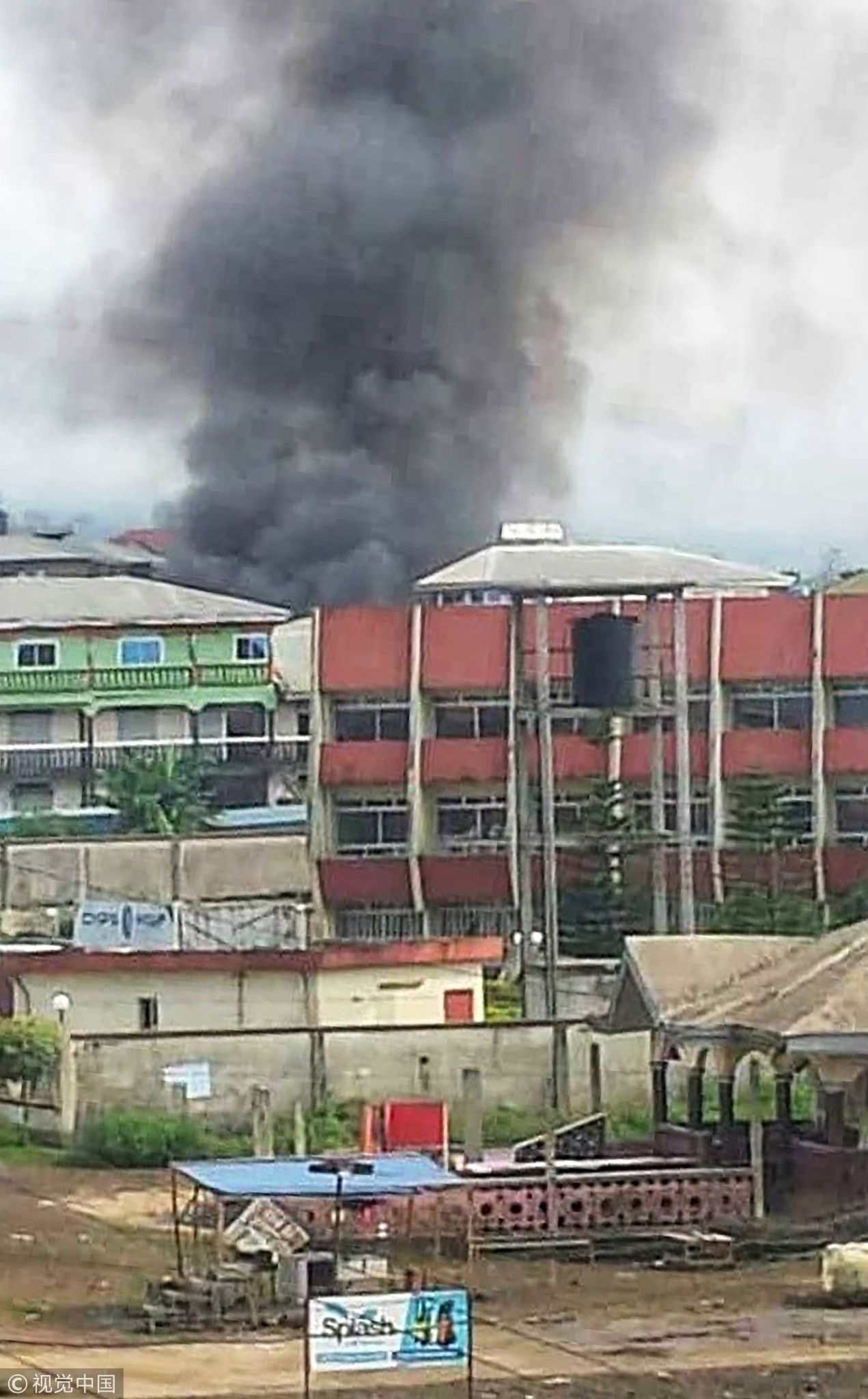
A picture taken on July 9, 2018, shows smoke billowing from fighting in the Mile 17 district of Buea, the capital of a western region of Cameroon gripped by violence between Anglophone separatists and security forces, witnesses said. /VCG Photo
A picture taken on July 9, 2018, shows smoke billowing from fighting in the Mile 17 district of Buea, the capital of a western region of Cameroon gripped by violence between Anglophone separatists and security forces, witnesses said. /VCG Photo
Some international watchers have accused the Cameroonian government of brutally cracking down on the insurgency, which the government itself has labelled the work of "terrorists."
Read more:
Equally worrisome security-wise is the violence caused by Boko Haram, the Nigeria-based Jihadist group aiming to impose an Islamic state based on sharia law, in Cameroon's Far North Region.
According to the International Crisis Group, Boko Haram fighters have been attacking Cameroon's North Region since 2014, killing at least 2,000 civilians and soldiers and kidnapping about 1,000 people so far.
As Professor Mbaku puts it, currently, the two biggest challenges facing the incumbent leader are mass poverty and what has been dubbed the Anglophone Problem - and the two issues are clearly interrelated.
An AFP report suggests that businesses are shutting down and unemployment is shooting up in the country's restive Anglophone regions.
Coffee and cocoa are key economic mainstays of the country's two English-speaking regions. 75 percent of Cameroon's Arabica coffee comes from the Anglophone northwest.
Last month the country's employers' group GICAM estimated that exports for both crops were down 20 percent, blaming the insecurity and the displacement of people escaping the unrest.
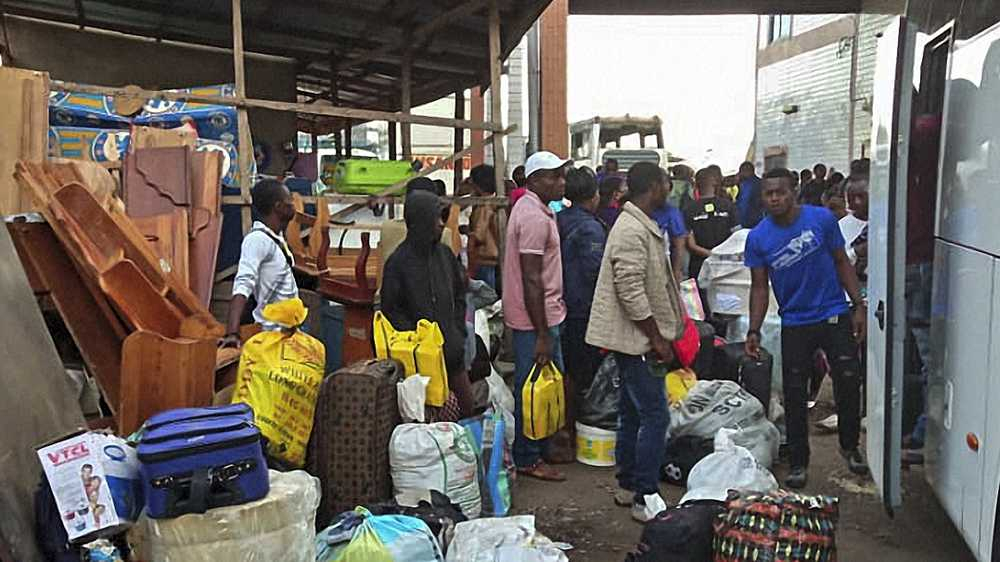
Residents from the Western Region in Cameroon arrive at the bus terminal in Buea following renewed clashed in the restive Anglophone region, July 15, 2018. /VCG Photo
Residents from the Western Region in Cameroon arrive at the bus terminal in Buea following renewed clashed in the restive Anglophone region, July 15, 2018. /VCG Photo
Meanwhile, the attacks by Boko Haram in the country's North Region have further impoverished the already poor area, destroying infrastructure and the once popular tourism industry there.
To tackle these issues, Professor Mbaku suggested, "The top priority for the next president, regardless of who he or she is, is resolving the Anglophone Problem. First, secure the peace, and this might involve withdrawing federal troops from the Anglophone Regions. Second, undertake national dialogue, perhaps with the help of France, the US, the UK, Germany, or better yet, the African Union, on how to resolve the constitutional crisis brought about by the bloody confrontation between the central government and secessionists."
As tough as that job is destined to be, Professor Mbaku stressed that the only way to resolve the conflict peacefully and prevent civil war is for the central government to start negotiations with Anglophone groups without preconditions, and take active measures to assure the English-speaking Cameroonians that their identity as Anglophones will be maintained.
With the election looming, it won't be long before Cameroon finds out whether Biya's experience and political wisdom, accumulated from the past 35 years, will be put into use to solve the conflict, or if that challenge will fall to someone else.

